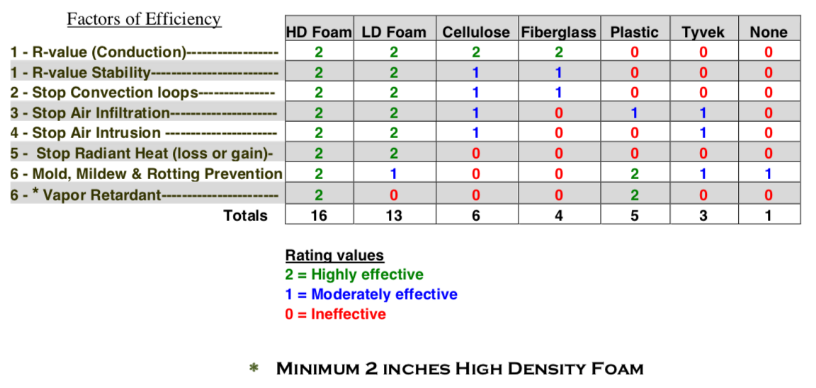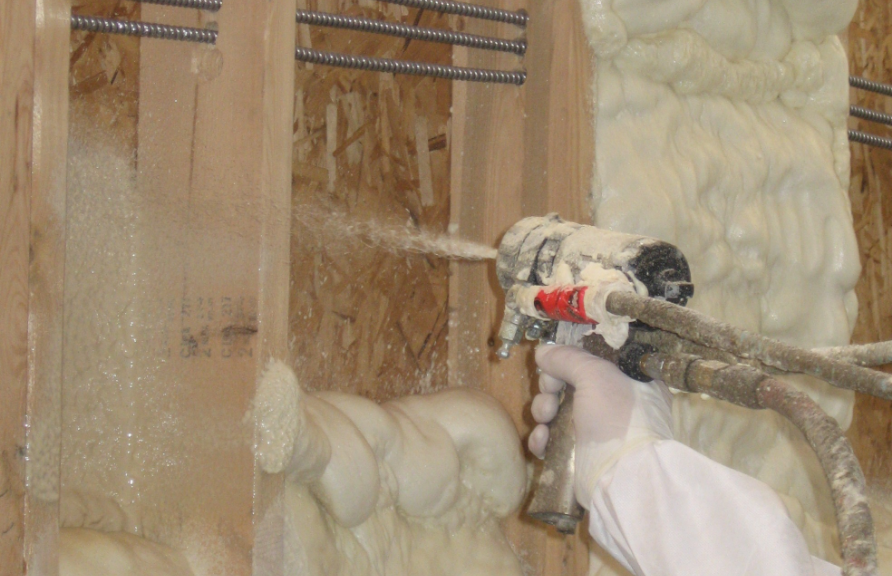Closed Cell (High Density) Sprayfoam
- R-6.5 per inch
- Stable R-Value
- Minimizes Conduction
- Stops Convection Loops
- Prevents Air Infiltration
- Air Intrusion- doesn’t affect performance
- Reduces Radiant Heat Gain
- Excellent Vapor Retardant
- Prevents Moisture Drive
- Rigid & Strong- increases racking strength of building
- Commercial Roofing Material
- Does NOT Absorb Water
Cons
▪ Can Over Tighten a Structure
This is measured and corrected using a Blower Door Test
Closed Cell/High Density Foam- can be used in many applications for a variety of different intentions. The vapor drive protection works in both directions. You will be in control of your temperature & humidity with this selection.
The myth of high-density foam not letting water through when sprayed to the roof deck is false. If the roof has a leak, the water always finds its way through. It would be responsible to make sure your roof has been replaced long before you get to this point.
Another issue brought up often, is running wires after the insulation has been applied. If using 2×6 wall studs, running wire should be very simple due to the rigid foam not giving it any resistance.

Open Cell (Low Density) Sprayfoam
- R-3.5 per inch
- Stable R-Value
- Minimizes Conduction
- Stops Convection Loops
- Prevents Air Infiltration
- Air Intrusion- doesn’t affect performance
- Reduces Radiant Heat Gain
- Excellent Soundproofing Quality
Cons
- Lacks High-Density Strength
- Can Over Tighten a Structure This is measured and corrected using a Blower Door Test
- Will typically not meet R-values when used in 2 x 4 walls
- Not a Vapor Retardant
- Will Not Stop Moisture Drive- Moisture moves through it
- Absorbs Water / Saturating Foam
Low-Density Foam- is also an impressive insulation choice. When used properly it can be exceedingly effective. Its only real fault is moisture can pass through and absorb in the process. You will need to consider this during the design phase. If moisture can pass through your insulation could it be trapped at the other side?
This must be considered if spraying to a roof deck or exterior walls. If not vented properly, it is possible that the low-density foam could create a build-up of moisture on the plywood leading to mold and mildew problems. When insulating below grade low-density foam is absolutely not an option to consider due to this very problem.
